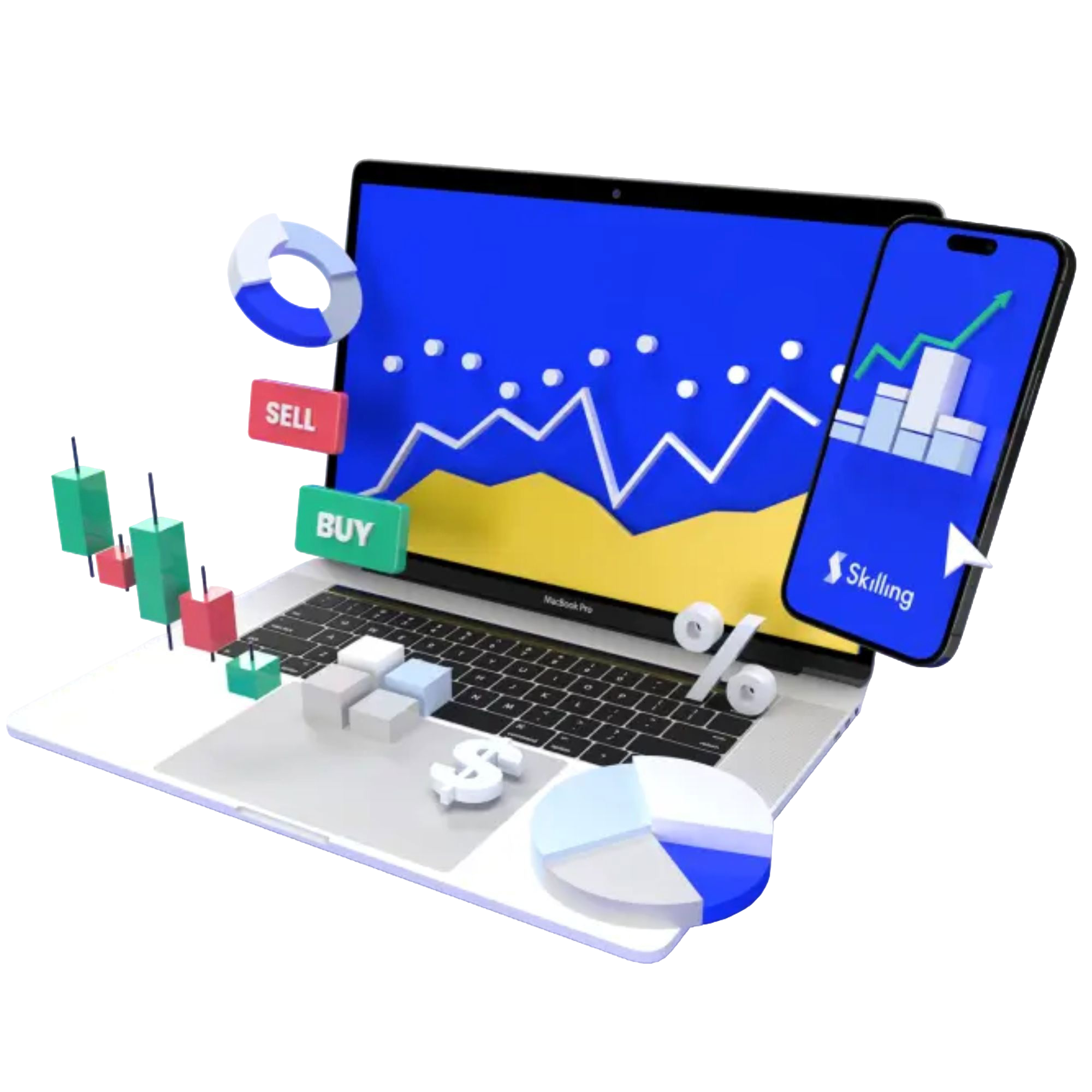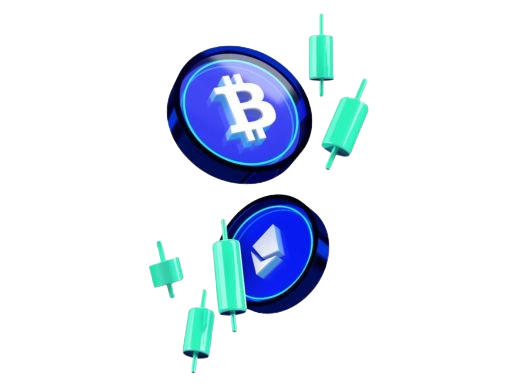Market makers play a key role in financial markets, providing liquidity and enabling smoother transactions for traders Their activities ensure that buyers and sellers are always in the market, which helps stabilize prices and improve market efficiency.
At Skilling, we aim to demystify the concept of market makers, explaining their functions, providing practical examples, and highlighting the differences between market makers and brokers. This article will give you an understanding of market makers and their importance in the trading ecosystem.
What does market maker mean?
A market maker is a firm or individual that actively quotes both a buy and a sell price in a financial instrument, hoping to profit from the bid ask spread. By doing so, market makers provide liquidity to the markets, ensuring that traders can buy or sell an asset at any given time. They play an essential role in maintaining market efficiency and stability.
Practice with a Demo Account
Try our demo account and experience real market conditions.
71% of retail CFD accounts lose money.

Key functions:
- Liquidity provision: Market makers ensure there are enough buy and sell orders, preventing significant price swings.
- Price stabilization: Market makers help stabilize the market by continuously quoting prices, reducing volatility.
- Facilitating transactions: They make it easier for traders to enter and exit positions without significant price changes.
Market maker example:
Consider a market maker in the stock market who deals with shares of Company ABC:
Profit scenario:
- Quoting prices: The market maker quotes a bid price of $100 and an ask price of $100.50 for ABC's shares.
- Facilitating trade: A trader wants to sell 100 shares of ABC. The market maker buys these shares at the bid price of $100.
- Selling shares: Another trader wants to buy 100 shares of ABC. The market maker sells these shares at the ask price of $100.50.
- Profit: The market maker earns $0.50 per share from the bid-ask spread, totalling $50 for this transaction.
Capitalise on volatility in cryptocurrency markets
Take a position on moving cryptocurrency prices. Never miss an opportunity.
71% of retail CFD accounts lose money.

Loss scenario:
- Quoting prices: The market maker quotes a bid price of $100 and an ask price of $100.50 for ABC's shares.
- Facilitating trade: A trader wants to sell 100 shares of ABC. The market maker buys these shares at the bid price of $100.
- Price movement: Unexpected negative news about Company ABC causes the stock price to drop to $95 before the market maker can sell the shares.
- Selling shares: To maintain liquidity, the market maker sells the 100 shares at the new market price of $95.
- Loss: The market maker incurs a loss of $5 per share, totaling $500 for this transaction.
By performing these functions, market makers provide liquidity but also take on the risk of price movements that can result in profits or losses. For instance, understanding the Bitcoin price can be crucial for market makers dealing in cryptocurrencies, as price volatility in digital assets can significantly impact their profit and loss scenarios."
Broker vs. market makers: What's the difference?
Understanding the distinction between brokers and market makers is essential for traders:
| Brokers | Market makers |
|---|---|
| Role: Brokers act as intermediaries between buyers and sellers, executing trades on behalf of clients. | Role: Market makers actively buy and sell securities from their own inventory, providing liquidity to the market. |
| Income: They earn commissions or fees for their services. | Income: They make profits from the bid-ask spread. |
| Client relationship: Brokers represent the interests of their clients, seeking the best prices available in the market. | Market function: Market makers are focused on maintaining liquidity and market stability rather than representing individual clients. |
While brokers facilitate trades for clients, market makers facilitate market liquidity by being ready to buy and sell at quoted prices.
Summary
Market makers are vital components of the trading ecosystem, ensuring liquidity, stabilizing prices, and facilitating smooth transactions. They differ from brokers, who act as intermediaries for clients.
By understanding the role and functions of market makers, traders can better navigate and appreciate the mechanisms that contribute to market efficiency, to help enhance a trader's ability to make informed decisions and effectively participate in the financial markets.
FAQs
1. What is a market maker?
A market maker is a firm or individual that quotes both buy and sell prices for financial instruments, providing liquidity and stabilizing markets.
2. How do market makers make money?
Market makers earn profits from the bid-ask spread, the difference between the buying and selling prices they quote.
3. Why are market makers important?
They ensure there are always buyers and sellers in the market, which helps to maintain liquidity, reduce volatility, and stabilize prices.
4. What is the difference between a broker and a market maker?
Brokers act as intermediaries for clients, earning commissions or fees, while market makers provide liquidity by buying and selling from their inventory, profiting from the bid-ask spread.
5. Can an individual be a market maker?
Typically, market makers are large financial firms or specialized trading firms, but in some markets, individuals with the necessary capital and expertise can also act as market makers.











